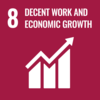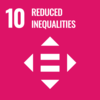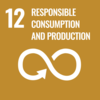Many of the world’s readymade garments are made in countries with very low labour costs, such as Bangladesh. But the profits generated by the industry are far removed from the workforce and conditions. Led by Muhammad Azizul Islam, Professor of Sustainability Accounting and Transparency, the team shone a light at the bottom of the supply chain and probed corporate responsibility.
Face-to-face interviews delved into the lived experience of Bangladeshi female garment workers during the Covid pandemic. Unethical corporate practices (cancellation of contracts, paying reduced prices and changing lead times) and ineffective legal protections were uncovered, and many workers already in precarious situations, went unpaid or lost jobs, unable to feed their families. Those retaining work risked Covid and had greater workload for less money along with abuses and gender violence.
Together with academic, NGO and policy partners, the team are enabling policy change to ensure that profits are not at the expense of people.
Annual carbon savings achieved with the initiative:


